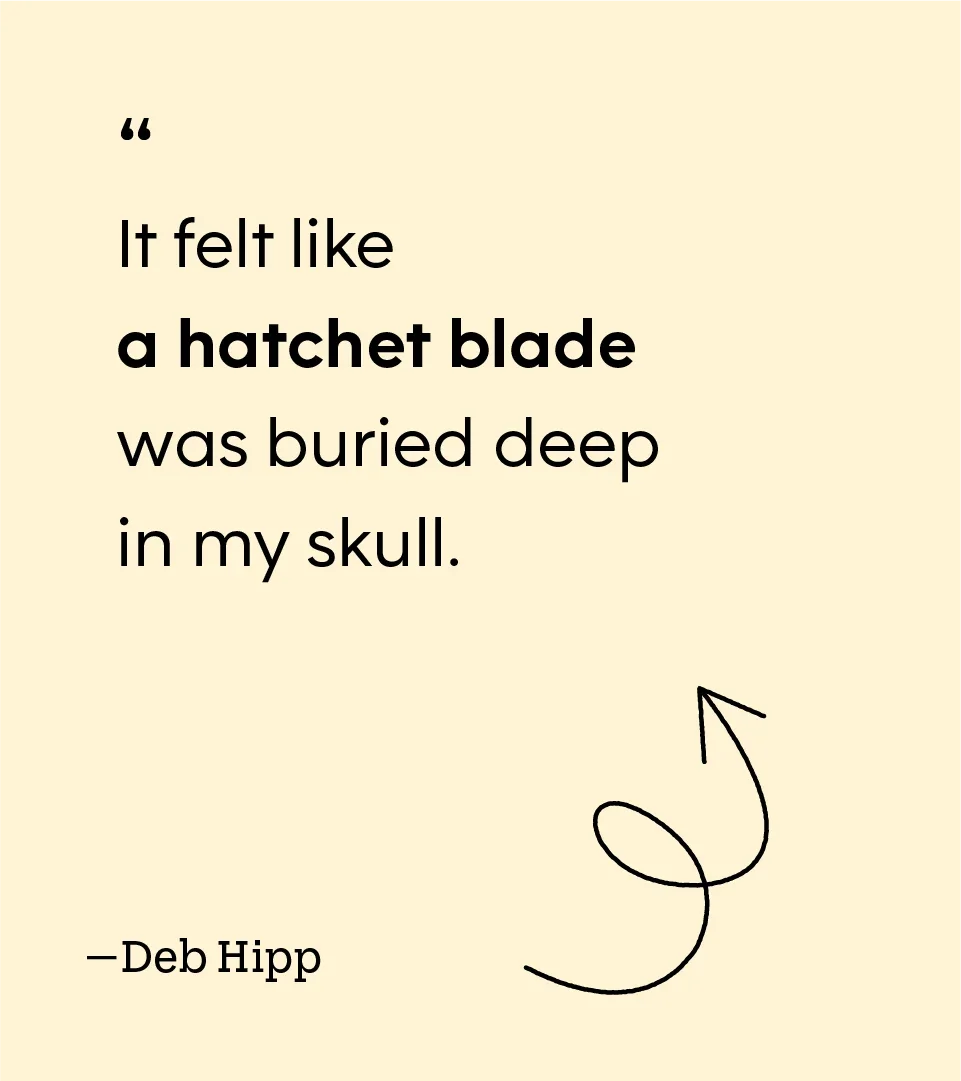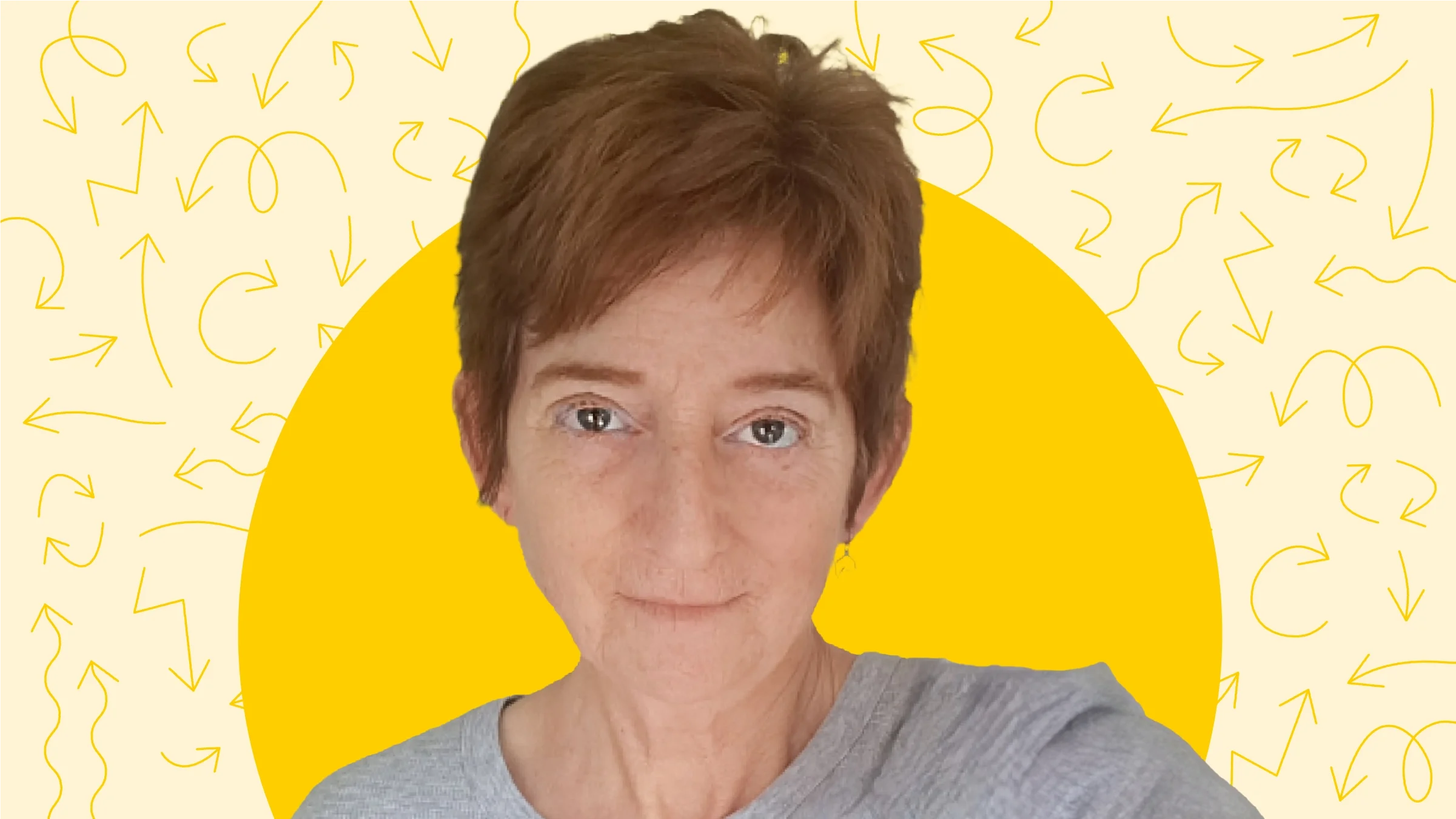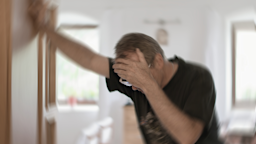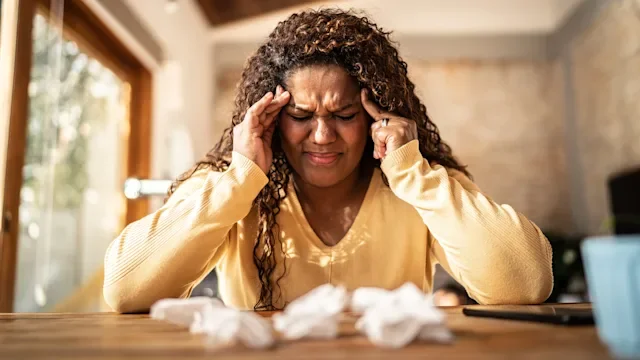Key takeaways:
It can take months to relearn skills and activities of daily living after a brain injury.
When writer Deb Hipp had a bike accident years ago that left her with a traumatic brain injury, she didn’t expect she’d be dealing with the aftermath decades later.
Her sense of smell isn’t what it once was. Neither is her short-term memory. But her injury made her prioritize her brain health.
When I walked my bike down a grassy slope to the paved riverwalk in Kansas City, Missouri, on a summer afternoon when I was 42, I had no idea that a traumatic brain injury would change the way my brain worked for the rest of my life.
For example, this morning, 23 years later, I removed two sticky note reminders for appointments from my bathroom mirror. Then I replaced them with two more things to remember. If I didn’t post notes like these on the mirror and keep a detailed to-do list and calendar, I might forget to do at least one of several tasks for the week.
Short-term memory loss is just one of the life-altering effects from my traumatic brain injury. Other impairments aren’t as serious. But they’re daily reminders of what it was like for me to recover from a brain injury.
Search and compare options
Worst headache of my life
The day of my concussion was the only time I left my bicycle helmet in the car. I was an avid bike rider, so I thought I’d be safe on the slow, paved ride. I climbed on my bike and began to pedal. Within seconds, my bike toppled over, slamming the right side of my head against the concrete.
After a couple of minutes, I sat up, dazed and confused. I had no memory of falling or of how it happened. All I knew was that my head hurt — a lot. After 20 minutes of composing myself, I drove my car home and went to bed.


When I woke up an hour later, a green-and-purple bruise covered the half of my face that hit the concrete. A nasty bruise also circled my left eye. A doctor later told me that my brain had bounced when my head hit the concrete.
I had the worst headache of my life. The pain was intense and relentless. It felt like a hatchet blade was buried deep in my skull and someone was jamming it deeper every second. That night, I frequently woke up in pain.
The next morning, a Friday, I saw a doctor at a hospital clinic who suspected a concussion. He gave me a prescription for the opioid pain reliever Vicodin. The medication barely made a dent. The doctor ordered a CT scan and promised to call with the results.
But Friday passed with no phone call. Meanwhile, I was sicker than I’d ever been in my life.
Read more like this
Explore these related articles, suggested for readers like you.
Hospitalized with a bleeding brain
By Sunday, I was vomiting repeatedly. My worsening headache made the situation unbearable. By then, I wasn’t thinking clearly because of the pain and dehydration. That afternoon, a friend took me to the ER. The neurologist reviewed my CT scan, which showed my brain was bleeding.
Blood work results also showed that my sodium levels were too low. I could have a seizure or lapse into a coma at any minute, a doctor told me. The hospital admitted me, and a nurse hooked me up to a pain medication IV. The pain dulled a bit. But it was still so bad. I couldn’t sleep.
Each morning at 4AM, the neurologist and a handful of medical students appeared at the foot of my bed. The neurologist had me follow his finger from right to left and up and down. Then I raised one limb after another while the group observed. The doctor asked about my pain level. Each day, a different student asked the same question: “Were you wearing a helmet?”
And each time, I replied with the deepest regret: “No, I wasn’t.”
Sticky note reminders and no sense of smell
The hospital released me after 6 days. But I was a long way from recovery. I went back to work after a few days. On the way there, my car rolled through a stop sign. I knew to stop, but my brain hadn’t sent the message to apply the brakes. I took the rest of the week off.
For weeks, I was so fatigued that I’d often fall asleep on the couch watching television. One night, I walked into the kitchen and projectile vomited with no warning. Two weeks after my brain injury, I completely lost my sense of smell.
At my follow-up visit a few weeks later, I told the neurologist that I couldn’t smell anything. “At least you’ll never get fat,” he told me. “Any other concerns?” After that, I lived with no sense of smell for 3 years.
After a couple of months, I tried to resume my active lifestyle. Midway through a tennis match, my friend (now estranged) stormed off the court because I kept forgetting the score. My short-term memory was awful. I also noticed another discouraging development.
As a professional writer, I prided myself on my ability to spell any word. Now I had to look up simple words in the dictionary. Frequently, I couldn’t remember where to place an i or whether a word had one s or two. I worried that my spelling issues could halt my writing career. I wondered if I’d ever be able to smell food or anything else.
I put sticky notes on the bathroom mirror so I wouldn’t forget deadlines and appointments. I tried to accept my new limitations. But I was also determined to regain some of what I’d lost.
What is considered a traumatic brain injury? Health professionals do tests to determine if a head injury is traumatic and whether it is mild, moderate, or severe.
What does recovery look like after a traumatic brain injury? It takes time to relearn skills, and it doesn’t look the same for everybody.
When should I see a doctor for a concussion? If your symptoms linger, it’s a good idea to see a healthcare professional.
Retraining my brain
My energy level gradually returned in 6 months. It took a few years for my brain to remember how to spell common words properly. But my writing career continued with occasional help from an online dictionary. Going 3 years with no sense of smell was depressing, though.
I missed the smell of barbecue wafting through the air from a grill down the block. No more taking in the salty smell of the ocean during beach walks. I missed the smell of Italian food, or any food for that matter. One day, I realized I wasn’t even trying to smell anymore. I’d given up.
So I began randomly sniffing everywhere I went, just in case. This went on for a month, with no improvement. Then one day, while shopping for coffee in an unfamiliar grocery store, I found the correct aisle because I smelled coffee bean bins. I was ecstatic. I was teaching my brain to smell again.
Soon, I could smell strong aromas, including coffee, barbecue, and foods cooking on the stove. My sense of smell has continued to get better. Now it’s about 40% of what it should be, and I’m grateful to have that much back. My short-term memory never returned to normal. It’s a little better, but I’ve accepted that it likely won’t return.
Staying on top of brain health
The biggest lesson I learned from recovering from a brain injury is that every part of my body depends on my brain to function. Not protecting my brain with a helmet while riding my bike was poor judgment. But I don’t beat myself up for it because I can’t reverse that mistake.
I wish my brain could do some things I once took for granted. Today, I stay on top of my brain health. I exercise, get enough sleep, socialize, and eat a healthy diet rich in vegetables, fruits, fish, leafy greens, and lean meats.
Most of all, I don’t ride my bike without a helmet. Not even to the end of my driveway. I now fully realize that my brain is a vital organ. Protecting and taking care of my brain is one reminder I’ll never need to post on the bathroom mirror.

Why trust our experts?





















